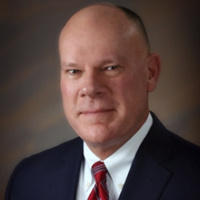Memphis Criminal Lawyer, Nebraska
Andrew J. Wilson
✓ VERIFIEDAccident & Injury, Personal Injury, Criminal, Divorce & Family Law, Wrongful Death
Andy is an Omaha native joining Carlson and Burnett as a partner with over 25 years of criminal and civil litigation experience. He began his career i... (more)
Timothy P. Sullivan
✓ VERIFIEDCriminal, DUI-DWI, Misdemeanor, Felony, Visa
Experienced, Effective, Aggressive Representation
Timothy Sullivan is a lawyer based in Lincoln, NE who can assist with criminal defense, family law, immigration, and more.
FREE CONSULTATION
CONTACTFREE CONSULTATION
CONTACTFREE CONSULTATION
CONTACTFREE CONSULTATION
CONTACTPerry Pirsch
Accident & Injury, Criminal, Estate, Employment, Government
Status: In Good Standing Licensed: 26 Years
FREE CONSULTATION
CONTACT


